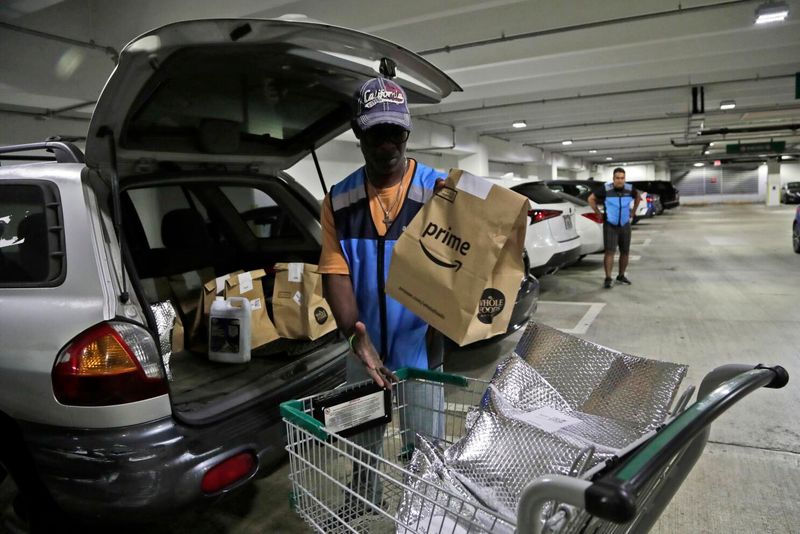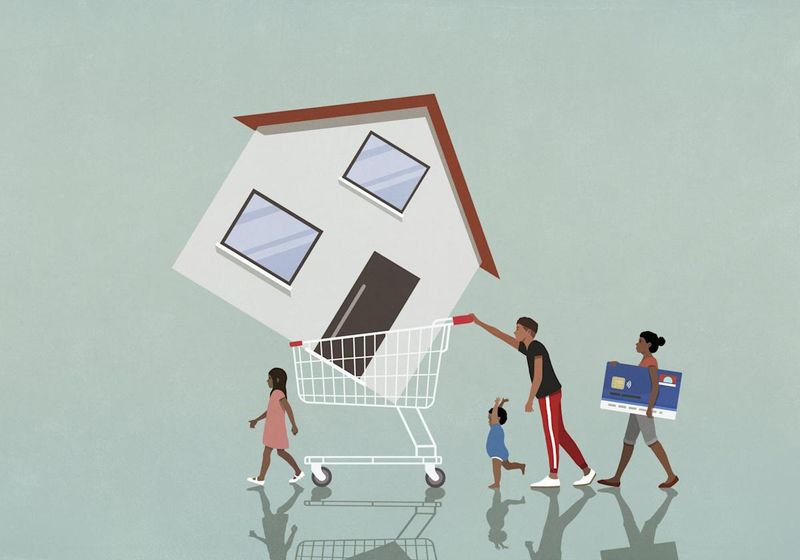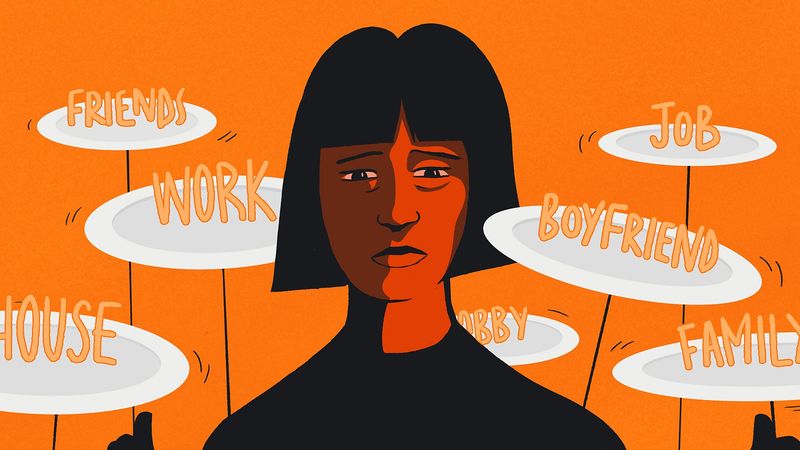Millennials, born between 1981 and 1996, constantly grapple with the exhausting blend of burnout and economic hardship. Despite being dubbed the “lazy” generation, they’re anything but. The real reasons behind their fatigue and financial strain are complex and multifaceted.
This post explores 15 authentic challenges they face, capturing the essence of why they’re perpetually drained yet financially stuck. From skyrocketing living costs to the incessant hustle culture, every aspect contributes to the relentless cycle of tiredness and economic instability.
Let’s delve into the heart of millennial struggles, highlighting how these factors uniquely affect them, often leaving little room for rest or financial freedom.
1. Why This Generation Feels Like It’s Always Running On Empty
Millennials often find themselves caught in an unending cycle of exhaustion. With the world demanding constant productivity, they juggle multiple roles—employee, student, caregiver—all while striving for personal growth. The pressure is relentless, leaving little room for genuine rest.
This generation is bombarded with the idea that they must always be “on.” Whether it’s responding to work emails post-office hours or maintaining a presence on social media, the demands never cease. This perpetual state of alertness contributes significantly to their chronic fatigue.
Moreover, the societal expectation to excel in every aspect of life, from career to relationships, exacerbates their tiredness. It’s no wonder they feel perpetually drained, struggling to find balance.
2. Cost of living keeps rising—pay doesn’t
As living expenses soar, millennials face a harsh reality: their salaries simply can’t keep up. Rent, groceries, healthcare—everything costs more every year, yet wages remain stagnant. This financial squeeze leaves them perpetually stressed.
The dream of owning a home feels increasingly unattainable. Instead, millennials are forced to rent indefinitely, watching their savings dwindle with each passing month. It’s a tough pill to swallow, especially when they see previous generations achieving financial milestones with relative ease.
This constant financial pressure is mentally and emotionally taxing. It’s a relentless cycle where no matter how hard they work, financial stability seems just out of reach.
3. Hustle culture replaced actual rest
In today’s society, hustle culture reigns supreme, glorifying overwork and undervaluing rest. Millennials, in particular, are caught in this relentless cycle, where rest is seen as a weakness rather than a necessity.
The pressure to always be productive is overwhelming. Social media feeds are flooded with success stories and “rise and grind” mantras, pushing individuals to sacrifice their well-being in the pursuit of success. It’s a vicious cycle that leaves them exhausted yet unable to stop.
This constant hustle leaves little time for genuine relaxation or self-care. The lines between work and personal life blur, making it hard to escape the grind, even momentarily.
4. Healthcare is a financial gamble
Navigating healthcare is a daunting task for many millennials. With insurance costs skyrocketing and coverage often lacking, seeking medical help becomes a financial gamble they’re wary to take.
High deductibles and premiums eat into their limited budgets, making them think twice before visiting a doctor. This hesitance isn’t just about money; it’s about choosing between their health and financial stability.
Moreover, unexpected medical emergencies can quickly drain savings, pushing them further into debt. The anxiety surrounding healthcare costs is a heavy burden, contributing to their overall stress and fatigue.
5. Side hustles became survival
For millennials, side hustles have transitioned from a way to earn extra cash to a necessity for survival. With the gig economy booming, many find themselves juggling multiple jobs just to make ends meet.
This constant hustle isn’t glamorous; it’s exhausting. Balancing different roles means sacrificing personal time, hobbies, and often health. Yet, for many, it’s the only way to combat stagnant wages and rising living costs.
The pressure to continuously hustle creates a cycle of fatigue and stress. It’s a relentless grind where every moment feels accounted for, leaving little room for genuine rest or relaxation.
6. Burnout is brushed off as laziness
Burnout is a common experience among millennials, yet it’s frequently misunderstood or dismissed as mere laziness. In a world where productivity is prized, admitting to burnout can be stigmatized, leaving individuals feeling isolated.
The relentless demands of modern life, coupled with societal pressure to constantly achieve, often lead to severe exhaustion. Millennials find themselves trapped in a cycle where they’re too tired to function but too afraid to stop.
Rather than being lazy, they’re overwhelmed. Their fatigue is a reflection of systemic issues, not personal failings. Breaking this perception is crucial for their mental well-being.
7. There’s pressure to “do what you love”—but also pay rent
The mantra “do what you love” sounds ideal but is often unrealistic for millennials facing financial pressures. While pursuing passion is encouraged, the need to pay bills often takes precedence.
Choosing between passion and practicality is a constant dilemma. Many millennials find themselves in jobs that pay the bills but fail to fulfill their aspirations, leading to dissatisfaction and fatigue.
This conflict between dreams and reality is draining. The pressure to find a career that aligns with personal interests while ensuring financial stability is a heavy burden many struggle to balance.
8. Financial milestones are moving targets
Achieving financial milestones is no easy feat for millennials. Unlike previous generations, they’re navigating a new economic landscape where traditional markers of success are increasingly out of reach.
Buying a home, starting a family, or even saving for retirement feels more like moving targets than attainable goals. Economic instability, student debt, and rising living costs make progress seem elusive.
This constant feeling of being “behind” wears on their mental health. It’s a relentless reminder that no matter how hard they work, the finish line keeps moving, adding to their stress and fatigue.
9. Social media adds constant comparison
Social media, once a tool for connection, now amplifies feelings of inadequacy among millennials. Constantly confronted with others’ curated successes, it’s easy to fall into the trap of comparison.
The pressure to keep up with peers is intense. Every scroll reveals someone’s new job, vacation, or purchase, creating a false narrative that everyone else is thriving while they struggle.
This constant comparison takes a toll on self-esteem and mental health. Millennials find themselves trapped in a cycle of envy and dissatisfaction, contributing to their overall exhaustion.
10. Student loans hang over everything
Student loans loom large over millennials, dictating financial decisions and fueling stress. With national student debt reaching astronomical heights, repayment feels like a never-ending battle.
Every financial choice, from career to housing, is influenced by the need to manage these loans. The burden is heavy, impacting their ability to save, invest, or even enjoy small luxuries.
The anxiety surrounding student debt is pervasive, affecting mental health and overall quality of life. It’s a constant reminder of past educational choices, creating a cloud of fatigue that never quite dissipates.
11. No clear line between work and life
In the modern era of remote work, millennials face the challenge of blurred lines between professional and personal life. The ability to work from anywhere often translates to working everywhere, at all hours.
This lack of boundaries leads to overworking and burnout. The home, once a place of rest, becomes just another office, making it difficult to truly disconnect and recharge.
Maintaining a work-life balance feels impossible. The constant pressure to be available and productive weighs heavily, contributing to their chronic exhaustion.
12. Time off feels like a luxury, not a right
For many millennials, taking time off feels like a luxury rather than a right. The fear of falling behind or being perceived as uncommitted keeps them tethered to their jobs.
Vacation days often go unused, as the pressure to maintain productivity outweighs the need for rest. The idea of stepping away from work seems daunting, adding to their stress.
This inability to disconnect and rejuvenate leads to burnout. Time off should be an opportunity for recovery, yet it feels more like an unattainable dream for many in this generation.
13. Rent eats half (or more) of their paycheck
For many millennials, rent consumes a significant portion of their paycheck, leaving little for savings or leisure. With housing costs skyrocketing, finding affordable accommodation seems impossible.
This financial strain limits their ability to plan for the future. Saving for a down payment or even an emergency fund feels out of reach when rent takes precedence.
The stress of living paycheck to paycheck is relentless. It’s a constant reminder of economic instability, fueling anxiety and fatigue as they struggle to make ends meet.
14. Even rest feels unproductive
In a world that glorifies hustle, even rest feels like a guilty indulgence for millennials. The pressure to always be productive leaves them questioning the value of downtime.
Relaxation is often overshadowed by thoughts of unfinished tasks or looming deadlines. This inability to fully disconnect creates a cycle of chronic fatigue and stress.
The notion that rest is unproductive is deeply ingrained. It’s a challenge to prioritize self-care when societal expectations push for constant achievement, leaving little room for genuine relaxation.
15. Therapy is helpful—but expensive
Therapy offers a lifeline for many millennials, yet its cost presents a significant barrier. While mental health support is crucial, the financial burden deters many from seeking help.
High session fees and limited insurance coverage make therapy seem like a luxury rather than a necessity. This financial hurdle forces them to weigh mental health against other expenses.
The struggle to afford therapy adds to their stress, leaving mental health needs unmet. It’s an unfortunate reality where financial constraints overshadow the need for emotional support.
















